Food - Our Basic Need Class 4 Notes Science
| Table of contents |

|
| Nutrients In Food |

|
| Balanced Diet |

|
| Junk Food |

|
| Cooking Food |

|
| Methods of Cooking |

|
| Food Preservation |

|
| Food Adulteration |

|
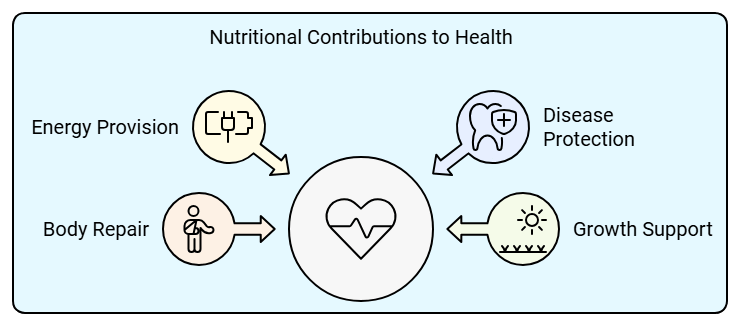
Food contains the nutrients. Nutrients are the substances needed by our body to grow, remain healthy and also to fight diseases. Food eaten by us is used by our body for the following purposes:
- To give us energy to do work
- To protect us from diseases
- To build and repair the parts of our body that have been damaged
- For growth
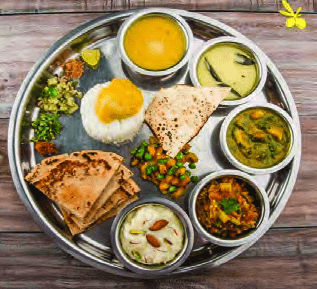 Food items
Food items
Nutrients In Food
In order to meet the demands of the body we need to eat food items that contain different nutrients. There are five different nutrients that are needed by our body. Each one has a different function.
- Carbohydrates
- Proteins
- Fats
- Vitamins
- Minerals
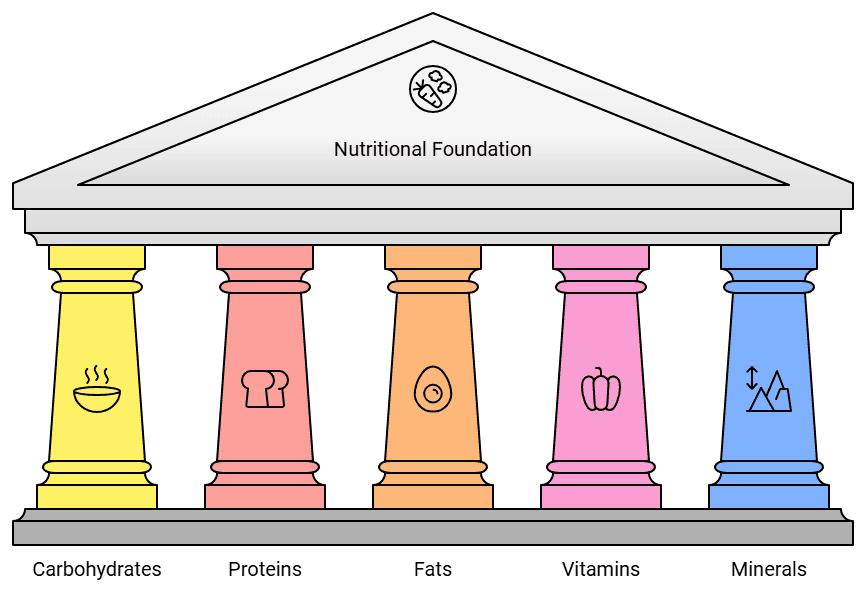
Carbohydrates
- Our body needs energy to work, play and do other activities. Carbohydrates are energy-giving nutrients.
- Starch and sugar are the two types of carbohydrates consumed by us.
- Examples of food items rich in starch are potato, rice, wheat and corn.
- Fruits such as bananas, grapes, pineapples, oranges, peaches and mangoes are rich sources of sugar.
- People who are involved in lots of physical labour, such as sportspersons and labourers need more carbohydrates to fulfill their energy-needs.
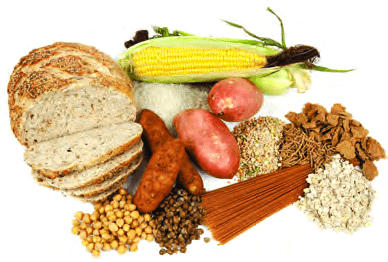 Food rich in carbohydrates
Food rich in carbohydrates
Proteins
- Proteins help to build, maintain and repair the tissues in our body. They are also known as body-building foods.
- In children, the growth of cells is more compare to the adults. Therefore, growing children should consume more protein than adults.
- Some good sources of proteins are meat, fish, eggs, milk, curd, cheese, other milk products, nuts and pulses.
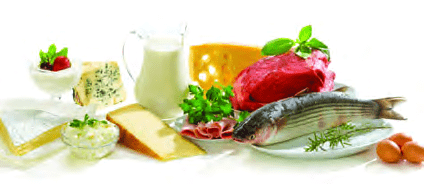 Food rich in proteins
Food rich in proteins
Fats
- Fats provide us with more energy than carbohydrates. They are also energy-giving foods.
- They act as the body’s reserve bank of energy. They protect vital organs by providing cushioning.
- Fats also help to keep the body warm during very cold weather. They are essential for healthy skin and hair. Butter, ghee, oil, nuts, and cheese are sources of fat.
- Too much fat in the diet may lead to obesity or overweight. It may further lead to other severe health complications such as heart disease.
 Food rich in fats
Food rich in fats
Edurev Tips:
- Avocado has highest protein content of all fruits.
Vitamins and Minerals
- Vitamins are substances that are found in foods we eat. They are protective foods.
- There are many vitamins and each one has some special role to play.
- Vitamin D builds strong bones and Vitamin C helps our body to heal in case of an injury.
- Besides vitamins, minerals are also protective foods.
- Calcium, iron and iodine are some examples of minerals. Green leafy vegetables, fruits, milk and fish are some food rich in vitamins and minerals.
Fibre or Roughage
The fibre or roughage in our diet is not digested and does not provide nourishment. However, it is an important part of our diet, because
- It helps other food pass easily through the digestive system and thus supports digestion.
- It helps in the smooth excretion of waste from the body by preventing constipation.
- A high- fibre diet may also help in maintaining proper weight.
Fibre comes from the parts of plant-based food that our body cannot digest. It is present in many fruits, vegetables, whole grains and legumes.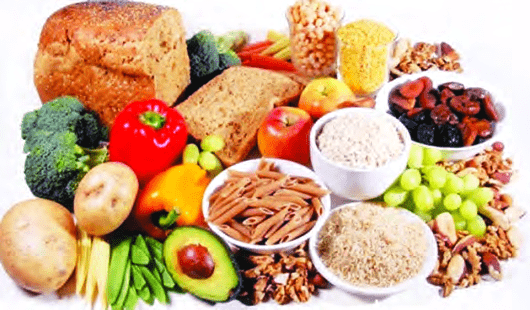 Food containing fibre
Food containing fibre
Water
- Water is essential for all bodily functions and for life. It makes up more than half of our body weight. Many vital body processes depend on water.
- For example, blood, which contains a lot of water, carries oxygen to all the cells of the body. Without oxygen, those tiny cells would die and the body would stop functioning. Water also helps in digestion and elimination of waste.
- We don’t get water only from drinking water. Any fluid we drink also contains water, such as juice and milk. Fruits and vegetables such as watermelons, pineapples, strawberries, plums, oranges, cabbage, spinach and turnip contain a good percentage of water.
- Drinking 6-8 glasses of water every day is a healthy habit.
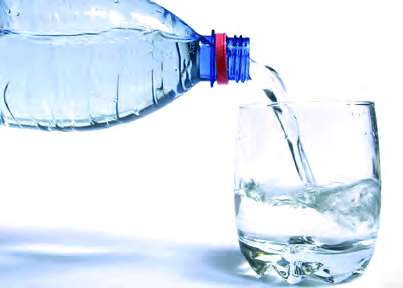 Water
Water
Edurev Tips:
- A person can live without food for a month but only about a week without water.
- Cucumbers are 96% water.
Balanced Diet
- Diet is the food we eat regularly. To stay healthy and fit it is important to have a balanced diet.
- A balanced diet contains all the essential nutrients – carbohydrates, fats, proteins, vitamins and minerals, in the correct amounts. It also includes roughage and sufficient amount of water.
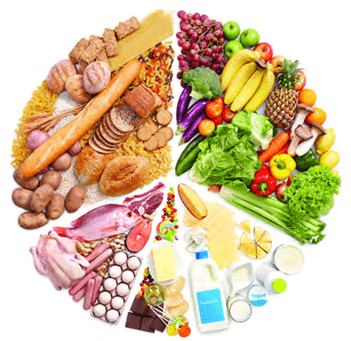 Balanced diet
Balanced diet
Junk Food
- Food that has too much of some things that the body doesn’t need or not much of things that the body needs is referred to as junk food.
- Fast foods such as pizzas and burgers; fatty foods, fizzy drinks, candies and chocolate are fun to have sometimes, but it’s not good to have them very often.
- Most junk food contain a lot of sugar, salt or fat. Though our body needs them but in limited amounts. However, when we eat too much of junk food we miss out on eating other food items which may have essential nutrients such as vitamins and minerals.
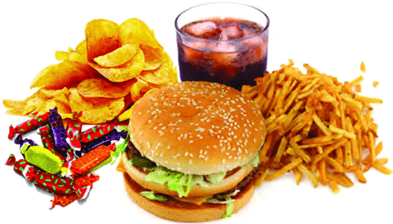 Say No to junk food
Say No to junk food
Some other ill effects of junk food are:
- Obesity
- Digestion problems
- Fatigue and weakness
- May adversely affect kidneys, liver and other vital organs

Cooking Food
We eat some foods, such as fruits, raw. Cooking destroys their taste and colour. The vitamins present in the fruits also get destroyed while cooking. They should be properly washed to get rid of dust and germs before eating. Other foods, such as vegetables and cereals, are cooked before eating.
There are some precautions which should be followed while cooking.
- We should not wash fruits and vegetables after cutting them.
- Even if we need to wash cut vegetables, we should never soak them in water for a long time because some vitamins present in them dissolve in the water.
- Rice and other products should be cooked by adding just the right amount of water needed to cook them, as the vitamins that have dissolved in the water will be wasted if the extra water is thrown out.
The advantages of cooking food are:
- Cooking makes the food soft and tasty.
- Cooking makes the food easy to digest.
- It kills the germs present in it. If the food is not cooked, the germs will enter our body and make us sick.
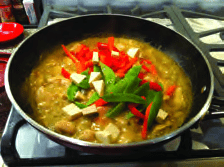 Food being cooked
Food being cooked
However, we should not overcook food. Here are some disadvantages of overcooking.
- Several nutrients, especially vitamins, are destroyed
- Loss of colour
- Loss of flavour
Edurev Tips:
Sprouting consists of germinating seeds such as gram and moong dal. They are then eaten either raw or slightly cooked. They provide us with many nutrients including proteins, carbohydrates, vitamins and roughage. Sprouts have some substances that the seeds produce while germinating. These substances are good for our health.
Sprouted gram and moong
Methods of Cooking
Food can be cooked by using different methods. Each method gives a different taste and texture to the same food.
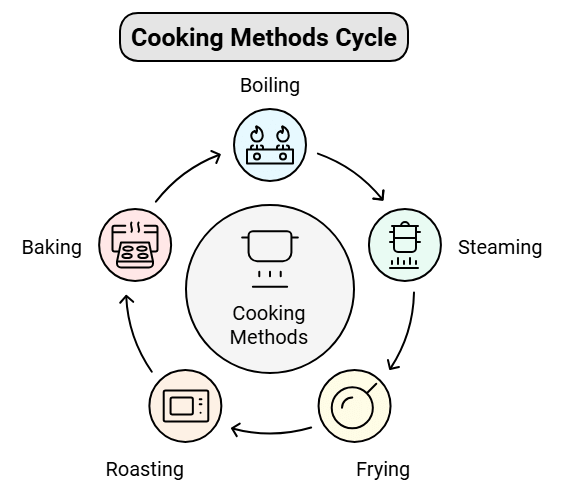
Boiling
Food is completely submerged in boiling water and cooked till it becomes tender. For example, we cook rice and eggs in boiling water.
Steaming
The food is cooked in a steamer with heat from the steam. For example, idlis are prepared in a steamer without coming in contact with water.
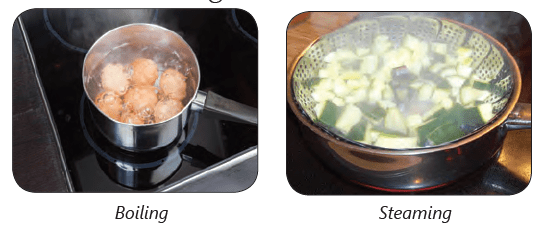
Frying
The food is cooked fully submerged in hot oil. However, this kind of food is greasy, indigestible and can make us fat. For example, samosa, poori and potato fries.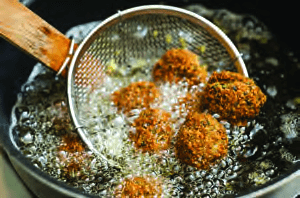 Frying
Frying
Roasting
The food is cooked using the dry heat of coals underneath. Meat and vegetables are roasted on flame.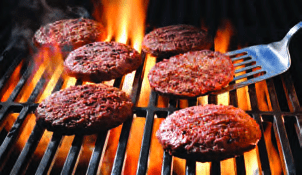 Roasting
Roasting
Baking
Food is cooked using the dry heat given by heating rods of the oven For example, baking of biscuits, cookies and cake.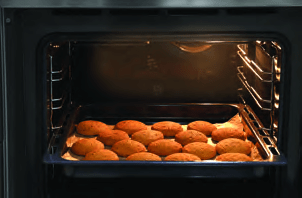 Baking
Baking
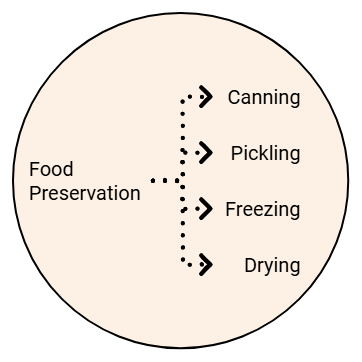
Food Preservation
Food should be stored properly, otherwise it gets spoilt and starts smelling bad.
Canning is a popular way of preser ving fruits, vegetables and meat in sealed cans.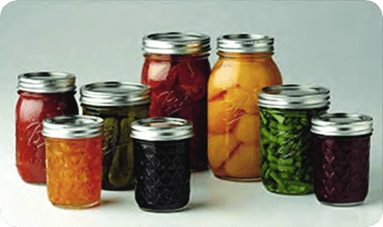 Canning Pickling involves preserving some vegetables and fruits using salt, sugar, oil, vinegar, etc.
Canning Pickling involves preserving some vegetables and fruits using salt, sugar, oil, vinegar, etc.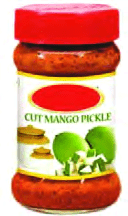 PicklingFreezing slows down decomposition of food by turning moisture into ice.
PicklingFreezing slows down decomposition of food by turning moisture into ice.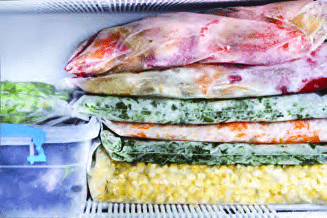 FreezingDrying dehydrates or removes moisture from the food. A variety of fruits and vegetables can be preserved using this method.
FreezingDrying dehydrates or removes moisture from the food. A variety of fruits and vegetables can be preserved using this method.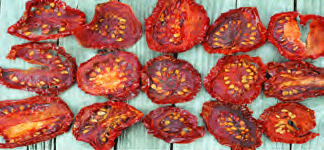 Dried slices of tomato
Dried slices of tomato
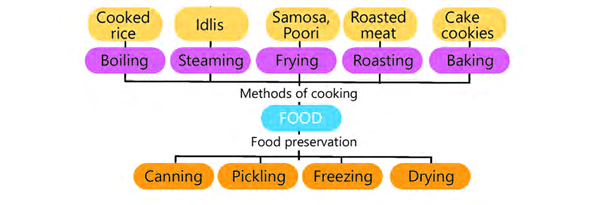
Food Adulteration
A dishonest milkman may add water to milk to earn more money. This increases the amount of milk but reduces the nutrients it has. Addition of substances to food that lower the quality of food is called food adulteration.
Some common adulterants are:
- Starch in Indian sweets
- Papaya seeds in black pepper
- Water and sugar in honey
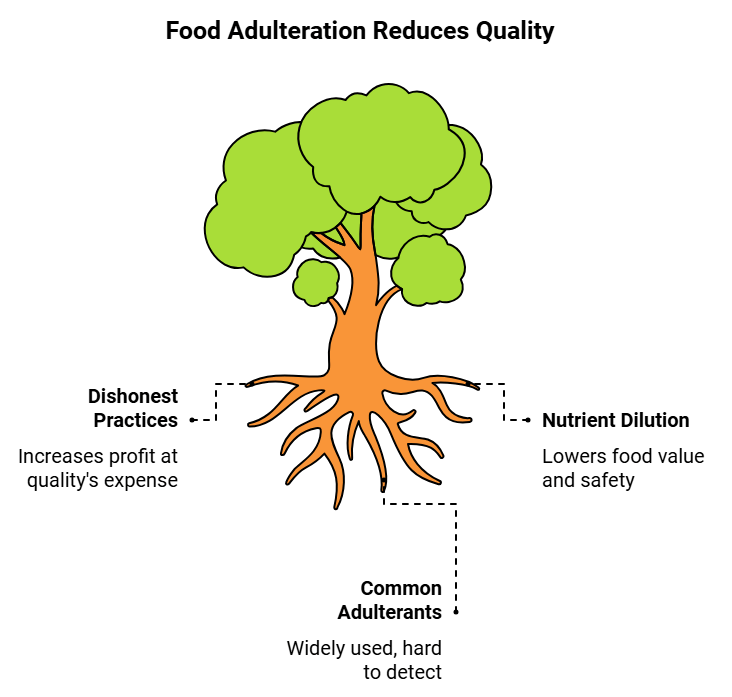
These substances when added in food, decrease its nutritive value.
Sometimes food is adulterated with harmful substances. For example, some harmful colouring agents may be added to food to make it look more attractive.
Consuming adulterated food may cause severe health problems.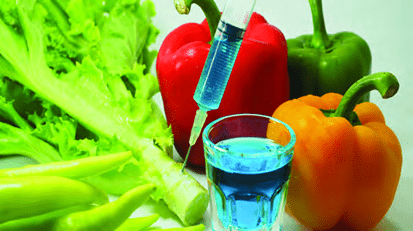 Food adulteration is harmful for us
Food adulteration is harmful for us
Edurev Tips:
If some cooked food is left over and you do not want to eat it, store it in the deep freezer of your refrigerator. You can again take it out after a few days and eat it. Also, leftover food can be used to make other delicious dishes. For example left over vegetables can be used to make sandwiches!
|
48 videos|68 docs|51 tests
|
FAQs on Food - Our Basic Need Class 4 Notes Science
| 1. What are the essential nutrients found in food and their functions? |  |
| 2. What constitutes a balanced diet? |  |
| 3. What are the health risks associated with consuming junk food? |  |
| 4. What are the different methods of cooking food, and how do they affect nutrition? |  |
| 5. How can food be preserved, and what are the common preservation methods? |  |

















